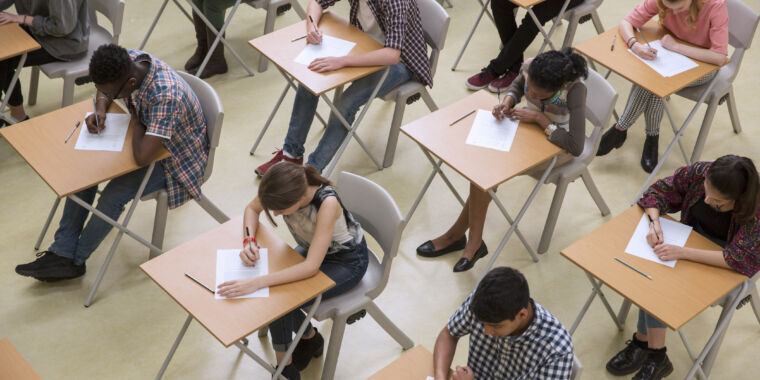Researchers create 30 fake student accounts to submit model-generated responses to real exams. Professors grade the 200 or 1500 word responses from the AI undergrads and gave them better grades than real students 84% of the time. 6% of the bot respondents did get caught, though… for being too good. Meanwhile, AI detection tools? Total bunk.
Will AI be the new calculator… or the death of us all (obviously the only alternative).
Note: the software was NOT as good on the advanced exams, even though it handled the easier stuff.
All this moral panic is garbage.
Easily solved by using essays with an unseen question written in exam conditions as assessment instruments.
Literally a pencil and paper solves this problem.
A lot of students do not perform well under exam conditions due to stress and pressure. Also, unless you’re entirely eliminating coursework, it doesn’t remove the issue.
No assessment method is perfectly suited to every student.
Coursework can be similarly adapted.
Not at all surprising. ChatGPT ‘knows’ a course’s content insofar as it’s memorized the textbook and all the exam questions. Once you start asking it questions it’s never seen before (more likely for advanced topics that don’t have a billion study guides and tutorials for) it falls short, even for basic questions that’d just require a bit of additional logic.
Mind you, memorizing everything is impressive and can get you a degree, but when tasked with a new problem never seen before ChatGPT is completely inadequate.
This is incorrect as was shown last year with the Skill-Mix research:
Furthermore, simple probability calculations indicate that GPT-4’s reasonable performance on k=5 is suggestive of going beyond “stochastic parrot” behavior (Bender et al., 2021), i.e., it combines skills in ways that it had not seen during training.
Memorizing everything is impressive for a human.
It’s less impressive for a computer.


